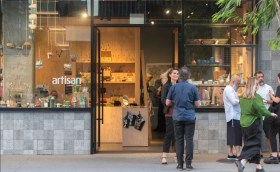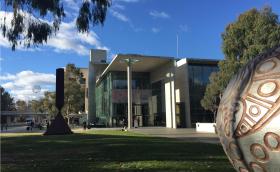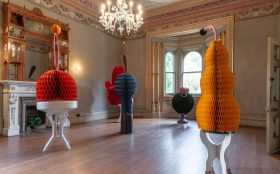Photo by Ian Schneider on Unsplash
There are many reasons to consider enrolling in tertiary education, whether now, when mid-year intakes are about to open, or at the start of 2019. Such reasons might include personal development, the opportunity for career advancement, or to finish the degree you started but never completed ten years ago.
Here are five reasons why enrolling in a tertiary arts course might be right for you.
Self-improvement and taking yourself seriously
For former blogger turned professional writer Andrew Webber, formalising his early blogging and writing experiences with tertiary education through Open Universities Australia was an important step in developing his career. It also helped him break through the familiar self-doubt we call imposter syndrome, and encouraged him to pursue writing as a new full-time professional career.
‘If someone wants to be a writer and wants to transition to writing as a full time job, as something that is going to pay the bills, they need to take themselves and what they do seriously,’ he said.
Read: Making the leap from blogger to full-time writer
Exposure to unique and relevant art
At the Western Australian Academy of Performing Arts (WAAPA), academic rigour instilled by passionate teachers is matched with a year-round performance program, ensuring that students are constantly exposed to enriching arts opportunities, both as audience members and active participants.
One of the most keenly-anticipated WAAPA productions each year is the mid-year musical theatre production. This year, the Academy is staging a gritty reimagining of the Rodgers and Hammerstein classic, Carousel, directed by the award-winning Jason Langley.
‘We’re working towards creating a Carousel for a new generation, one that’s a little darker, a little edgier and a little more relevant to our current social climate of #metoo,’ Langley said.
Read: Reimagining a brutal love story for the age of #MeToo
Crystalise your ideas and refine your aesthetic
We all know how frustrating it can be to try and pin down an idea that’s just out of reach. Like snatching a falling leaf out of the air on a windy autumn day, sometimes the creative process can feel impossible – but the right course can help you identify and articulate what it is you’re trying to achieve.
Alice Boer-Endacott has been writing since the age of six but it wasn’t until she was in the midst of an Executive Master of Arts at the University of Melbourne that everything fell into place for her.
‘We were talking about, “What is it that you do?” And at the core of it I said: “I tell stories. I am interested in what it is about stories and people.” And then after having not written something really significant in quite some time, I picked up a pen and wrote 60,000 words,’ she said.
‘I definitely credit the EMA as crystalising what all my various interests were that I loved and then pushing me back towards what I had always – at the heart of it – been circling around.’
Read: How a self-published indie author built her brand
It was a similar story for emerging fashion designer Veronika Midor, who moved to Australia from her native Russia and enrolled at Collingwood’s LCI Melbourne.
Working with teachers and collaborating with fellow students helped her hone her aesthetic. ‘The training at LCI Melbourne helped me to plan and implement my creation … I learnt how to work with colour and with mood boards,’ Midor said.
She’s also gained a range of invaluable connections who can help her with the next stage of her design career.
‘’If I hired special companies for all these works that I learned to do myself at LCI Melbourne, it would have been very expensive. Very often, it’s the size of large investments that discourages talented designers in opening their own business. At LCI Melbourne I met a lot of talented people who agreed to help me with photos and videos for the brand. This also saved me a lot,’ Midor explaind.
Read: How I launched my label
Challenging yourself creatively
Undertaking a Doctorate, such as the National Art School’s Doctor of Fine Art (DFA), doesn’t just help you hone artistic and academic rigour – it can also lead to the creation of major new art works.
Offered as a three-year full-time, or six-year part-time degree, the DFA is tailored towards practicing artists who wish to pursue their individual research interests, refine their studio practice, and work towards developing their professional artistic careers.
‘There is a scholarly dimension,’ said the National Art School’s Head of Studies, Simon Cooper, said, ‘but the DFA has been designed to refine both research and practice – one isn’t subordinate to the other. That research activity is a means to an end to develop a major body of work. It will be quite demanding in that regard.’
Read: Study your Doctorate at the National Art School
Becoming part of a committed cohort
For many arts students, participating in an extend period of study doesn’t just spark new ideas – it can connect you with valuable collaborators and future friends. This is especially true at institutions such as Leichhardt’s Actors Centre Australia, which commits to graduating it’s cohort each year.
‘What we don’t do at Actors Centre is we don’t cull. Many other schools will take 40 people and then cull down to 15. We accept 26 people, and with hand on heart, we commit to graduating 26 people,’ said Founding Director Dean Carey.
‘I say to the students on their first day, “Our commitment is for your course to be phenomenal – that is our commitment to you all.” Therefore the teaching environment is not random. So once you’ve got your sights set on that it becomes very hard for it to fall away. And you’ve got that sense of commitment all around you.’
Read: Auditions now open for the Journey Program at Actors Centre Australia






